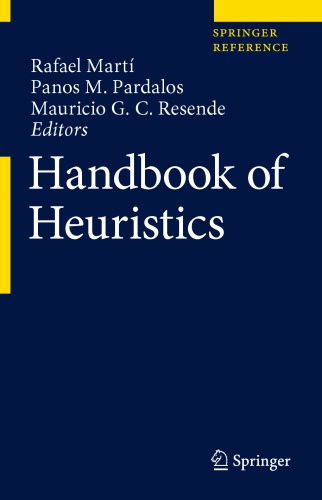
Handbook of Heuristics
On Sale
$400.00
$400.00
Heuristics are strategies using readily accessible, loosely applicable information to control problem solving. Algorithms, for example, are a type of heuristic. By contrast, Metaheuristics are methods used to design Heuristics and may coordinate the usage of several Heuristics toward the formulation of a single method. GRASP (Greedy Randomized Adaptive Search Procedures) is an example of a Metaheuristic. To the layman, heuristics may be thought of as ‘rules of thumb’ but despite its imprecision, heuristics is a very rich field that refers to experience-based techniques for problem-solving, learning, and discovery. Any given solution/heuristic is not guaranteed to be optimal but heuristic methodologies are used to speed up the process of finding satisfactory solutions where optimal solutions are impractical. The introduction to this Handbook provides an overview of the history of Heuristics along with main issues regarding the methodologies covered. This is followed by Chapters containing various examples of local searches, search strategies and Metaheuristics, leading to an analyses of Heuristics and search algorithms. The reference concludes with numerous illustrations of the highly applicable nature and implementation of Heuristics in our daily life. Each chapter of this work includes an abstract/introduction with a short description of the methodology. Key words are also necessary as part of top-matter to each chapter to enable maximum search engine optimization. Next, chapters will include discussion of the adaptation of this methodology to solve a difficult optimization problem, and experiments on a set of representative problems.
